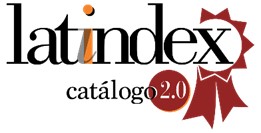Aprendizagem subsidiária sobre epidemias resultante da modelação com equações diferenciais
DOI:
https://doi.org/10.48489/quadrante.23603Palavras-chave:
aprendizagem por meio da modelação, modelos emergentes, modelação expressiva ou exploratória, modelos de equações diferenciais, noções e conceitos epidemiológicosResumo
Este artigo apresenta um estudo de caso sobre estudantes que realizam a modelação de epidemias, usando sistemas de equações diferenciais. O estudo propõe a ideia de aprendizagem subsidiária (spin-off) sobre epidemias como um processo entrelaçado com a aprendizagem da matemática e examina as condições para que essa aprendizagem ocorra durante a modelação de epidemias. A aprendizagem da matemática é conceptualizada em termos de modelação e modelos emergentes e identificada, por meio de análise textual, a partir da sua associação com a matematização progressiva, horizontal e vertical. Os indicadores de aprendizagem subsidiária estão ligados à matematização. Além disso, a aprendizagem subsidiária está relacionada com a direção, expressiva ou exploratória, que a modelação assume. Como resultado, a estratificação das atividades de matematização dos alunos e a introdução da noção de direção permitiram apontar diversas condições para que ocorra uma aprendizagem subsidiária no âmbito dos processos de modelação. Mais ainda, os resultados mostraram o enorme potencial da modelação matemática para a aprendizagem subsidiária que pode ser alcançada e utilizada, no plano social, como preparação para enfrentar novas crises.
Referências
Berget, I., & Bolstad, O. (2019). Perspektiv på matematisk modellering i Kunnskapsløftet og Fagfornyinga. Nordisk tidsskrift for utdanning og praksis, 13, 83-97. https://doi.org/10.23865/up.v13.1882
Blanchard, P., Devaney, R. L., & Hall, G. R. (2002). Differential equations. Brooks/Cole.
Blomhøj, M., & Ärlebäck, J. (2018). Theory-practice relations in research on applications and modelling. In T. Dreyfus, M. Artigue, D. Potari, S. Prediger, & K. Ruthven (Eds.), Developing research in mathematics education: Twenty years of communication, cooperation and collaboration in Europe (pp. 90-105). Routledge. https://doi.org/10.4324/9781315113562-8
Blum, W., & Niss, M. (1991). Applied mathematical problem solving, modelling, applications and links to other subjects – State, trends and issues in mathematics instruction. Educational Studies in Mathematics, 22, 37-68. https://doi.org/10.1007/BF00302716
Carreira, S., Amado, N., & Lecoq, F. (2011). Mathematical modelling of daily life in adult education: Focusing on the notion of knowledge. In G. Kaiser, W. Blum, R. Ferri, & G. Stillman (Eds.), Trends in teaching and learning of mathematical modelling. ICTMA14. Springer. https://doi.org/10.1007/978-94-007-0910-2_21
Cobb, P. (2002). Modelling, symbolizing and tool use in statistical data analysis. In K. Gravemeijer, R. Lehrer, B. van Oers, & L. Verschaffel (Eds.), Symbolizing, modelling and tool use in mathematics education (pp. 171-195). Kluwer Academic Publishers. https://doi.org/10.1007/978-94-017-3194-2_11
Freudenthal, H. (1991). Revisiting mathematics education. Kluwer Academic Publishers.
Gravemeijer, K. (2020). Emergent modelling: An RME design heuristic elaborated in a series of examples. Educational Designer, 4(13). https://www.educationaldesigner.org/ed/volume4/issue13/article50/
Gravemeijer, K., & Stephan, M. (2002). Emergent models as an instructional design heuristic. In K. Gravemeijer, R. Lehrer, B. van Oers, & L. Verschaffel (Eds.), Symbolizing, modelling and tool use in mathematics education (pp. 145-169). Kluwer Academic Publishers. https://doi.org/10.1007/978-94-017-3194-2_10
HOPE (2020). Danish research project Hope. https://hope-project.dk/
Ju, M.-K., & Kwon, O. N. (2007). Ways of talking and ways of positioning: Students’ beliefs in an inquiry-oriented differential equations class. Journal of Mathematical Behavior, 26(3), 267-280. https://doi.org/10.1016/j.jmathb.2007.10.002
Lindholt, M. F., Jorgensen, F., Bor, A., & Petersen, M. B. (2020). Danskernes Smitteforebyggende Adfærd og Opfattelser. http://a.bimg.dk/node-files/941/23/23941215-hope-projektet-30-november-2021.pdf
Kvale, S. (2001). Interview. En introduktion til det kvalitative forskningsinterview. Hans Reitzels Forlag.
Niss, M. (2020). The impact of Dutch mathematics education on Danish mathematics education. In M. van den Heuvel-Panhuizen (Ed.), International reflections on the Netherlands didactics of mathematics. ICME-13 Monographs. Springer Open. https://doi.org/10.1007/978-3-030-20223-1_17
Niss, M., & Blum, W. (2020). The learning and teaching of mathematical modelling. Routledge. https://doi.org/10.4324/9781315189314
Selter, C., & Walter, D. (2020). Supporting mathematical learning processes by means of mathematics conferences and mathematics language tools. In M. van den Heuvel-Panhuizen (Ed.), International reflections on the Netherlands didactics of mathematics: Visions and experiences with Realistic Mathematics Education (pp. 229-253). Springer Open. https://doi.org/10.1007/978-3-030-20223-1_13










